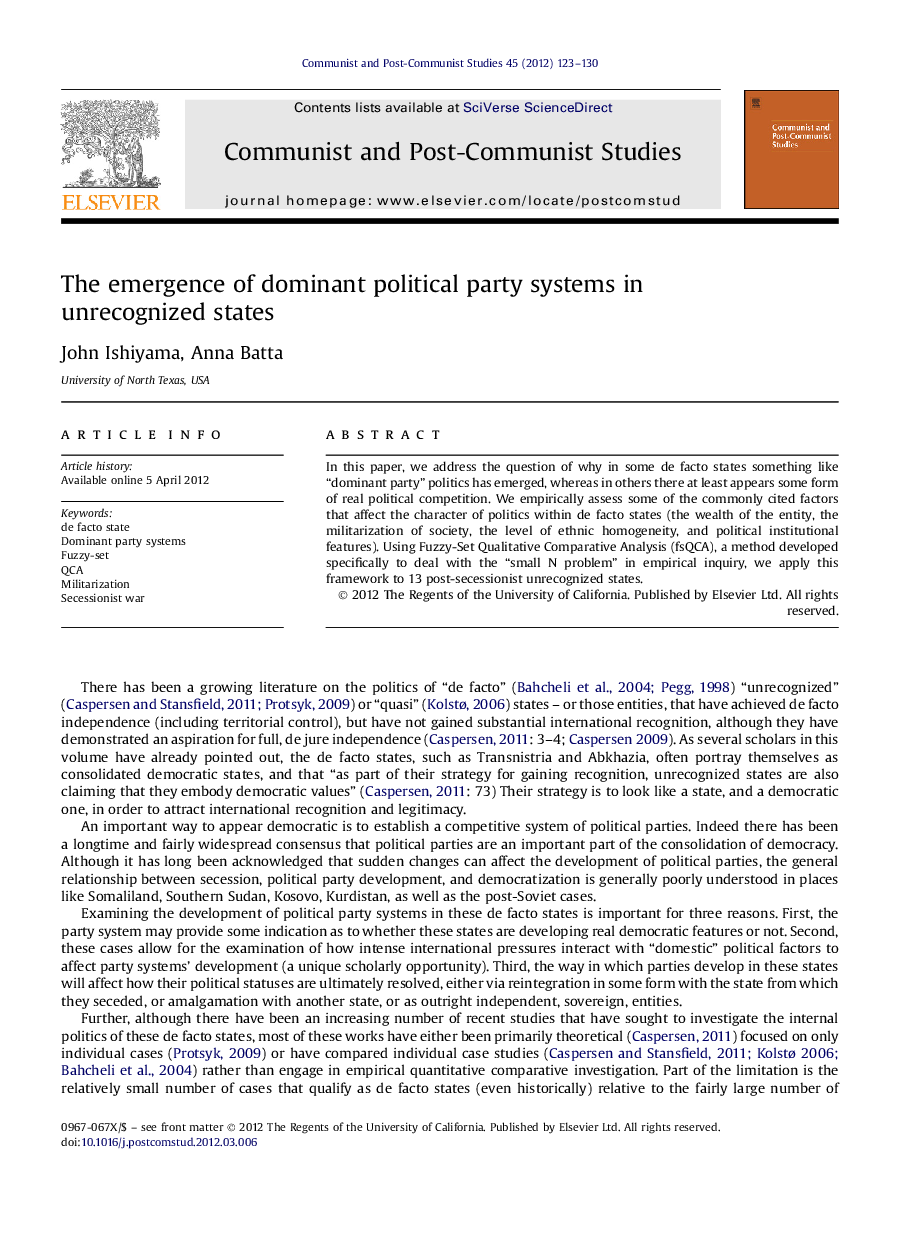| Article ID | Journal | Published Year | Pages | File Type |
|---|---|---|---|---|
| 1046674 | Communist and Post-Communist Studies | 2012 | 8 Pages |
Abstract
In this paper, we address the question of why in some de facto states something like “dominant party” politics has emerged, whereas in others there at least appears some form of real political competition. We empirically assess some of the commonly cited factors that affect the character of politics within de facto states (the wealth of the entity, the militarization of society, the level of ethnic homogeneity, and political institutional features). Using Fuzzy-Set Qualitative Comparative Analysis (fsQCA), a method developed specifically to deal with the “small N problem” in empirical inquiry, we apply this framework to 13 post-secessionist unrecognized states.
Keywords
Related Topics
Social Sciences and Humanities
Social Sciences
Development
Authors
John Ishiyama, Anna Batta,
